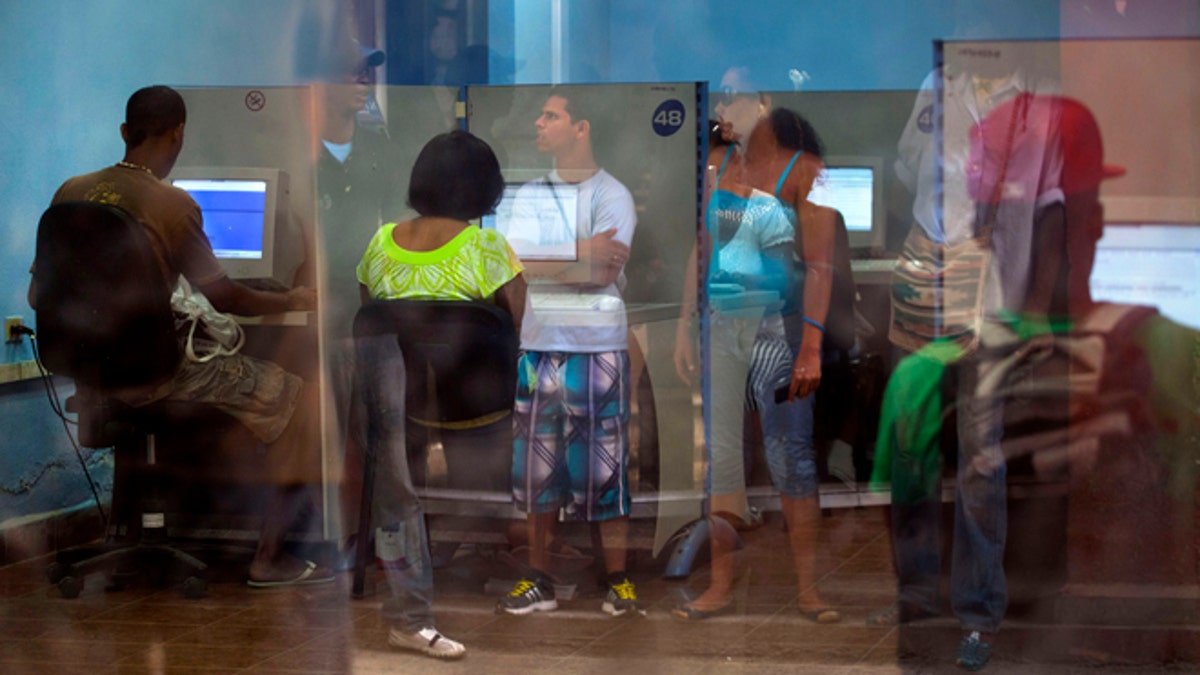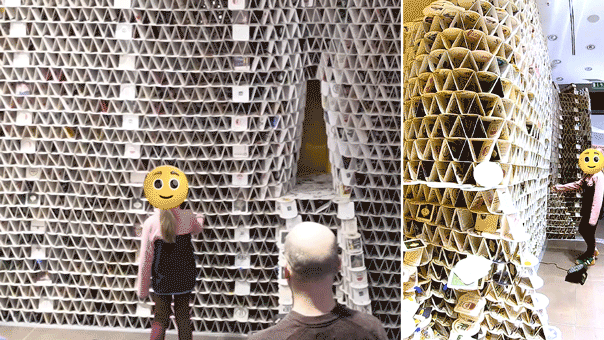
People line up at a post office as they wait to use the Internet service in Havana, Cuba, Tuesday, May 28, 2013. (AP2013)
Havana – While home Internet access will remain greatly restricted in the country, Cuban authorities said Tuesday that they will begin offering public web access at more than 100 cyber-salons across the island.
Starting June 4, people can sign up with state telecom Etecsa for temporary or permanent accounts to use one of the 118 centers, according to a measure enacted with its publication in the government's Official Gazette.
"New areas for (Internet) navigation will gradually be incorporated," official newspaper Juventud Rebelde reported.
Until now, the Internet has been limited to places such as tourist hotels that charge $8 an hour for creaky Wi-Fi, foreign-run companies and some sectors of Cuban business and government. Residential dial-up accounts are rare and restricted.
According to government statistics, only 2.9 percent of Cubans said they had access to the Worldwide Web — though outside observers put the likely figure at 5 to 10 percent, taking underreporting into account.
About 16 percent were able to go partway online via a domestic Intranet and email, often through workplace or school hookups or places such as computer clubs and post offices.
"Great! I knew this was coming," said Camila Delgado, a 44-year-old shop worker in Havana, though she added that "there's still a ways to go to be like everywhere else on the planet. We don't have access at home and the prices are prohibitive."
Indeed, some scoffed at the new cyber-centers' price tag of $4.50 an hour, a stiff fee for islanders whose state salaries average about $20 per month plus an array of subsidized goods and services.
"It's a real bargain," snarked a user on state news website Cuba Si who gave the name Osvaldo Ulloa. "I mean, I work for a week and then I can get online for hour — fabulous."
Even for those who are already able to access the wider Internet, some sites are censored for things including pornography or politically objectionable content. It was not clear whether the new service will block such pages, and neither the Gazette nor Juventud Rebelde mentioned the issue.
The Internet is a highly politicized issue on the island, with critics pointing to restrictions as an example of infringement upon freedom.
Authorities say that the limitations are due more to technical reasons and that Cuba has the obligation to prioritize its limited capacity for things that benefit the public good, such as research and work centers or universities.
Earlier this year, Cuba began sending and receiving data traffic through a fiber-optic cable strung from Venezuela in 2011 that provided the island's first hard-wired Internet connection to the outside world.
Expanding connectivity options for Cubans "is consistent with Cuba's stated strategy of continuing to facilitate more and more access to new technologies, depending on the availability of resources and with a focus that favors social use," Juventud Rebelde said.
The paper added that the new service is possible thanks to the Venezuela cable.
Based on reporting by The Associated Press.
Follow us on twitter.com/foxnewslatino
Like us at facebook.com/foxnewslatino








































